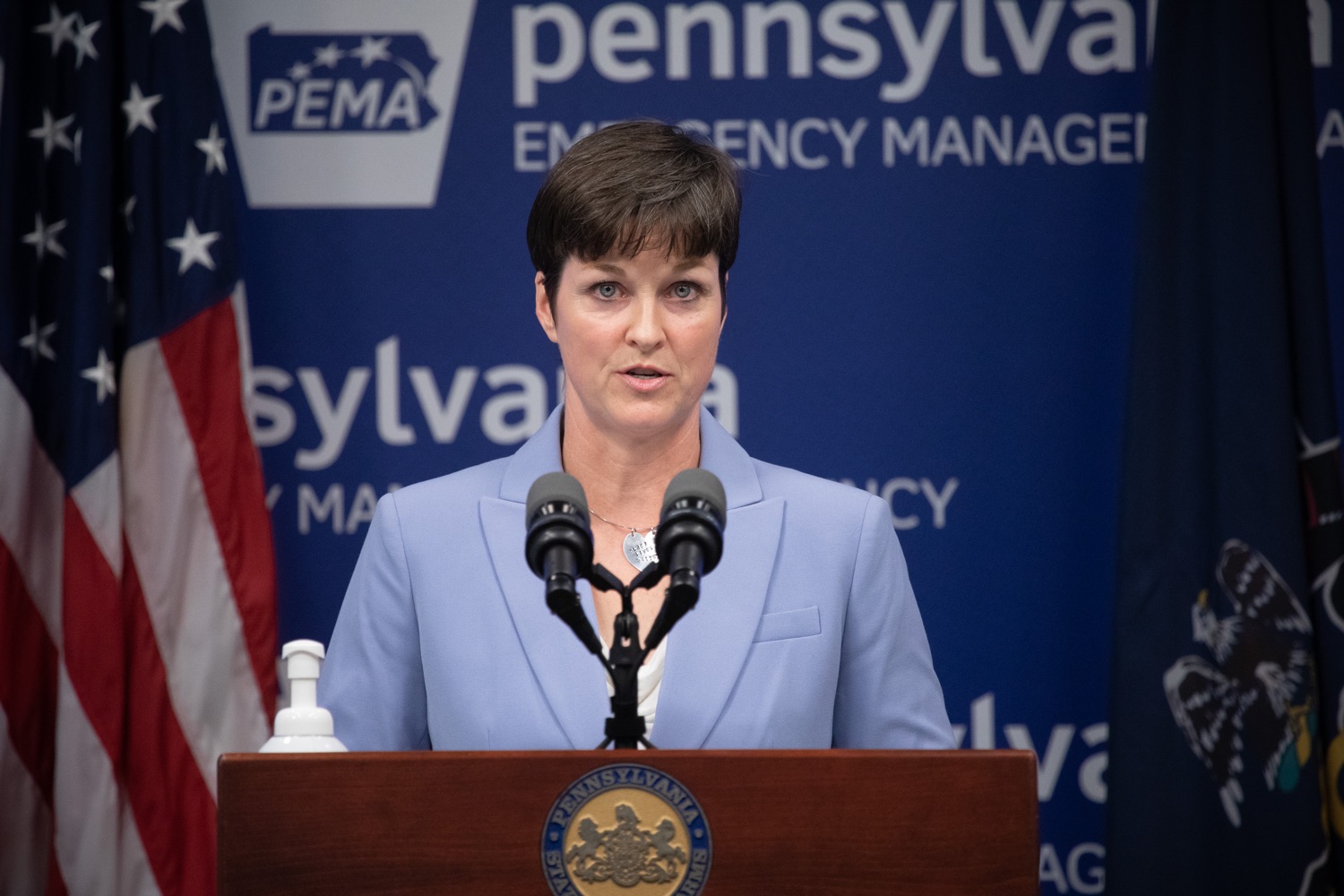
Secretary of Human Services Teresa Miller answers questions from the press.Governor Tom Wolf announced that people with intellectual disabilities and autism and the providers of support services for these vulnerable Pennsylvanians will receive $260 million in CARES Act funding to help continue to provide services during the COVID-19 pandemic. Gov. Wolf was joined by Department of Human Services Secretary Teresa Miller, who outlined to details of funding allocations. JUNE 15, 2020 – HARRISBURG, PA
Harrisburg, PA – The Pennsylvania Department of Human Services (DHS) has submitted a request to the United States Department of Agriculture (USDA) that would extend additional Supplemental Nutrition Assistance Program (SNAP) funds to all SNAP recipients. The request follows a ruling by the United States District Court for the Eastern District of Pennsylvania stating that the USDA misinterpreted the law permitting additional payments by requiring states to limit additional distributions to certain SNAP recipients.
“As the nation continues to face the COVID-19 pandemic, access to essential needs like food is more important than ever to help keep people healthy and mitigate co-occurring health risks,” said DHS Secretary Teresa Miller. “I am hopeful that the USDA will help address this need and permit Pennsylvania and other states to extend additional support to some of our lowest-income residents as we continue to navigate this time of crisis.”
A monthly SNAP benefit is based on a household’s income resources, and the number of people in the household. The Families First Coronavirus Response Act (FFCRA) authorized additional payments to SNAP recipients based on federal and state disaster declarations for COVID-19. The USDA interpreted this to extend only to SNAP recipients who do not currently receive the maximum monthly benefit for their household size. Households not currently receiving the maximum monthly benefit have received a supplemental payment to increase their monthly SNAP benefit to the maximum monthly payment for their household size, but the USDA said that households who were already getting the maximum monthly benefit were not eligible to get additional payments under the FFCRA. This interpretation was challenged in the Eastern District Court by Community Legal Services.
Under the FFCRA, Pennsylvania has been approved to extend additional SNAP benefits to certain SNAP recipients since March and can continue as long as federal and state disaster declarations related to COVID-19 remain in place. However, due to USDA’s guidance that this additional benefit is only to go to households not currently receiving the maximum monthly benefit, 40 percent of SNAP households have not received additional SNAP benefits – meaning the lowest-income SNAP recipients are receiving no additional SNAP benefit.
DHS previously requested authority to extend additional benefits to all SNAP recipients in April but did not receive approval. Since then, Governor Tom Wolf and Secretary Miller have, on multiple occasions, asked the USDA to reconsider this interpretation and Congress to specifically extend this additional support to all recipients in future relief bills.
Pennsylvania resubmitted this request due to the continued economic insecurity and the need to help all Pennsylvanians – particularly those in low-income situations who face barriers to essential needs security – keep food on the table during the public health emergency. Food insecurity can greatly impact a person’s health, and individuals with poor health are much more susceptible to complications or a worse prognosis if they contract COVID-19. Helping people meet this essential need is just one way of protecting public health during the pandemic and period of economic insecurity.
If the plan DHS has submitted to the USDA is approved, households that receive the maximum monthly SNAP benefit would receive a supplemental payment equal to 50 percent of their monthly payment. DHS is requesting authority to retroactively authorize this payment back to March 2020 and through October 2020 to align with supplemental payments issued to households not receiving the monthly maximum benefit.
“Our actions in the weeks and months to come will shape not just our response to this pandemic, but also the world we will accept when COVID-19 is no longer a threat. If people are going without essential needs like food now, this will affect their health in both the short and long-term,” said Sec. Miller. “Expanding support for all SNAP recipients, as we believe Congress intended in the Families First Coronavirus Response Act, will help us ensure vulnerable Pennsylvanians served by SNAP like seniors, people with disabilities, low-income and working people, and children have what they need to meet essential needs and stay healthy and safe as the pandemic evolves.”
SNAP helps nearly 1.9 million Pennsylvanians by providing money each month to spend on groceries, helping households have resources to purchase enough food to avoid going hungry. SNAP is our country’s most important and impactful anti-hunger program. For every meal provided by a Feeding Pennsylvania food bank, SNAP provides nine. While SNAP is intended to be a supplemental program, during this pandemic and its historic unemployment, resources are strained, particularly for our lowest-income Pennsylvanians. SNAP ensures that individuals and families are able to have enough to eat while also supporting grocers, food retailers, and agricultural producers across Pennsylvania.
Applications for the Supplemental Nutrition Assistance Program (SNAP) and other public assistance programs can be submitted online at www.compass.state.pa.us. All Pennsylvanians experiencing financial hardships due to the pandemic, a lost job, or a change in income are strongly encouraged to apply and see if they qualify for assistance with food, health care, and other essential needs.
For more information about food assistance resources for people around Pennsylvania impacted by COVID-19 and the accompanying economic insecurity, visit the Department of Agriculture’s food security guide.
To learn more about SNAP and other DHS programs, visit www.dhs.pa.gov.

